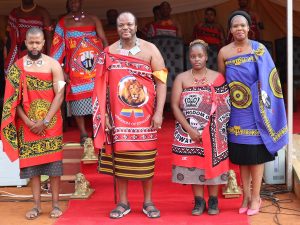By Ncaba Ntshakala
The Ministry of Economic Planning and Development, through its SADC unit, has officially announced the 2025 SADC Secondary School Essay Competition, which is offering an opportunity for young minds to contribute to the future of the region.
This year’s topic, “How can innovation enhance SADC industrialization and sustainable economic growth and development?” is aimed at sparking interest and research among secondary school students on how innovation can drive the socio-economic progress of the Southern African Development Community (SADC).
SADC shared more details in a statement shared. In the statement, it states that the essay competition is open to all secondary and high school students within SADC member states,
with the aim of raising awareness among youth on the importance of regional cooperation, integration, and sustainable development.
The competition is rooted in the belief that the prosperity of the SADC region lies in the hands of its younger generation.
RELATED: Minister Owen commends Inyatsi for generous sponsorship in schools’ competitions
The topic for the 2025 edition, according to the SADC Secretariat, is inspired by the theme of the 44th Ordinary SADC Summit of Heads of State and Government, held in Harare, Zimbabwe, on 17th August 2024.
The theme, “Promoting Innovation to unlock opportunities for sustained economic growth and development towards an Industrialised SADC,” highlights the role of innovation as a key driver for growth in the region’s priority sectors, such as manufacturing, mineral beneficiation, and agro-processing.
The SADC Secretariat noted that innovation holds significant potential to transform these sectors, enhance industrialisation, and stimulate economic growth across the region.
The essay competition provides students with a platform to present their ideas on how innovation can be leveraged to support these goals, while encouraging them to think critically about regional cooperation and socio-economic development.

Moreover, participating students are required to submit their essays to their respective school head teachers, who will then forward the top entries to their country’s Ministry of Education.
The Ministry will select the best three essays at the national level, which will go on to compete at the regional level.
To ensure fairness and diversity, the regional adjudication process involves three education experts from different SADC member states, who will select the top three essays from across the region.
The regional winners will receive significant prizes for their efforts: the first prize is E26 000.00 (US$1,500),
the second prize is approximately E17 000.00 (US$1,000), and the third prize is E13 000.00 (US$750), in addition to certificates.
National-level winners will also be rewarded, with the overall national winner receiving E8 600.00 (US$500), the second-place finisher receiving E5 200.00 (US$300), and the third-place finisher receiving E3 400.00 (US$200).
RELATED: Inyatsi Foundation unveiled as title sponsor of Eswatini Schools Arts and Culture competitions
SADC has highlighted the importance of encouraging students to participate in this competition.
Parents, teachers, and school authorities are urged to motivate learners to engage with the competition, which not only enhances their research skills but also deepens their understanding of the vital role that regional cooperation and innovation play in SADC’s socio-economic landscape.
This competition, introduced following a 2000 decision by the SADC Council of Ministers in Windhoek, Namibia, has been a cornerstone of SADC’s efforts to engage the youth in its mission for regional cooperation and integration.
Recently, His Majesty King Mswati III has lauded two former students from Entjendlovu High School who participated in the competion in 2014 and 2015.
The King expressed that he was pleased to see the two learners participating in such and he encouraged more Eswatini learners to participate in such saying that it exposes them to greater things.
The two students who are Mancoba Msibi and Nonduduzo Ndwandwe were awarded E5000.00 each by His Majesty when he officially opened their former school.
Their English teacher, Nontobeko Zulu received E20 000.00. Zulu was lauded by the King for helping students from a rural school to go and compete regionally.


